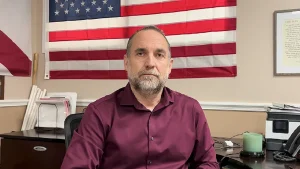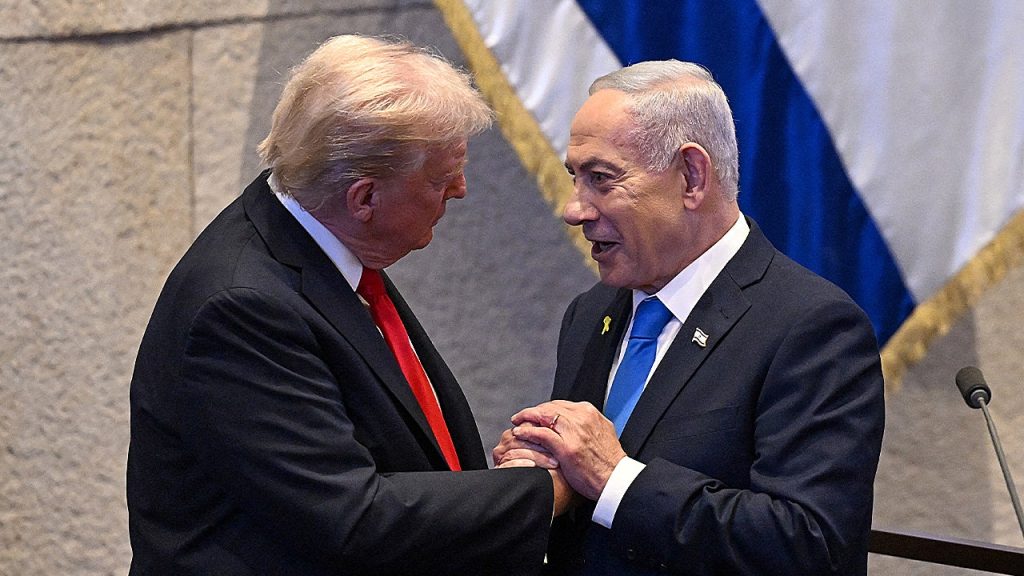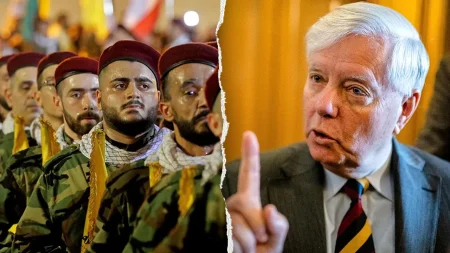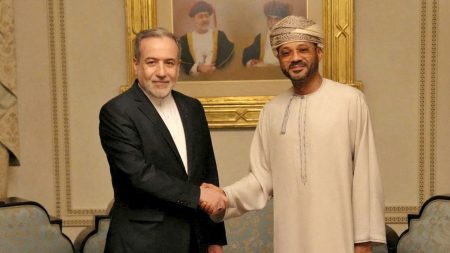Netanyahu Praises Trump as Israel and Hamas Reach Historic Peace Agreement
In a significant diplomatic moment, Israeli Prime Minister Benjamin Netanyahu has hailed President Donald Trump as “the greatest friend” Israel has ever had, coinciding with Hamas releasing the final 20 living hostages under a newly brokered peace agreement. During his speech, Netanyahu expressed profound gratitude toward Trump, stating unequivocally that “No American president has ever done more for Israel. It ain’t even close.” This praise came as Netanyahu announced Trump’s nomination as the first non-Israeli recipient of the Israel Prize, the nation’s highest honor. The warm exchange between the leaders included Trump’s lighthearted acknowledgment of Netanyahu’s challenging personality, remarking with a smile that “He’s not easy — not the easiest guy to deal with — but that’s what makes him great.”
The peace deal marks a potential turning point after nearly two years of devastating conflict following the October 7, 2023 Hamas attack on southern Israel that killed more than 1,200 people and resulted in approximately 240 hostages being taken. Netanyahu specifically thanked Trump for supporting military operations against shared adversaries, including “Operation Rising Lion” and the aptly named “Operation Midnight Hammer” targeting Iranian nuclear sites. “Boy, you got to hear this — this is the most fitting name ever given to a military operation, because a little after midnight, you really hammered them,” Netanyahu said, highlighting Trump’s decisive action in backing Israel’s security concerns. The prime minister also expressed appreciation for Trump’s previous policy decisions, including standing up for Israel at the United Nations, recognizing Israel’s territorial claims in the West Bank, and withdrawing from what Netanyahu described as the “disastrous” Iran nuclear deal.
The breakthrough agreement, mediated by Trump administration officials after months of negotiations, began implementation with a prisoner exchange that saw Hamas release the final 20 living hostages in return for Israel freeing 2,000 Palestinian prisoners. This exchange forms part of a comprehensive 20-point peace plan designed to end the conflict and rebuild Gaza. The agreement addresses immediate humanitarian concerns while establishing a framework for long-term stability. Under its terms, Israel has halted military operations and withdrawn to pre-defined lines, allowing for the complete exchange of hostages. The deal offers amnesty or safe passage to Hamas members who renounce violence, while excluding those who continue resistance from Gaza’s future governance structure.
Humanitarian relief stands as a central pillar of the agreement, with provisions ensuring the free flow of critical supplies, infrastructure repair, and medical support into Gaza. These aid efforts will operate under the supervision of neutral organizations including the United Nations and the Red Crescent, addressing the urgent needs of a population devastated by prolonged conflict. The agreement acknowledges the humanitarian crisis while creating mechanisms for sustainable recovery. In terms of governance, Gaza will transition to a technocratic Palestinian committee overseen by an international “Board of Peace” chaired by Trump himself, with former British Prime Minister Tony Blair and other global leaders participating. This body will manage Gaza’s redevelopment until a reformed Palestinian Authority is prepared to assume control, creating a pathway to legitimate governance.
The peace plan incorporates an ambitious economic vision led by Trump to transform Gaza through international investment, aiming to create a “thriving modern miracle city.” This development approach includes establishing a special economic zone with preferential trade terms to attract international capital and business opportunities. Importantly, the agreement emphasizes that no residents will be forced to leave Gaza, stressing voluntary participation in rebuilding efforts. This economic framework addresses both immediate recovery needs and long-term development goals, recognizing that sustainable peace requires economic opportunity and stability for the Palestinian people. The economic provisions reflect a belief that prosperity can serve as a foundation for peace, providing alternatives to extremism.
Security arrangements form the final critical component of the agreement, with provisions for a U.S.-led International Stabilization Force to train Palestinian police, secure borders, and oversee disarmament processes. Israel will neither occupy nor annex Gaza but will implement a phased withdrawal as security milestones are achieved. Regional partners including Egypt and Jordan will play supporting roles in ensuring compliance and preventing militant threats from reemerging. The recovery of hostages remains an ongoing concern, with only four of the 28 presumed dead hostages returned thus far. This comprehensive approach to security acknowledges both Israeli security requirements and Palestinian aspirations for sovereignty, attempting to balance these competing priorities within a framework that prioritizes civilian safety and regional stability. If successful, this agreement could represent a historic shift in one of the world’s most intractable conflicts.















